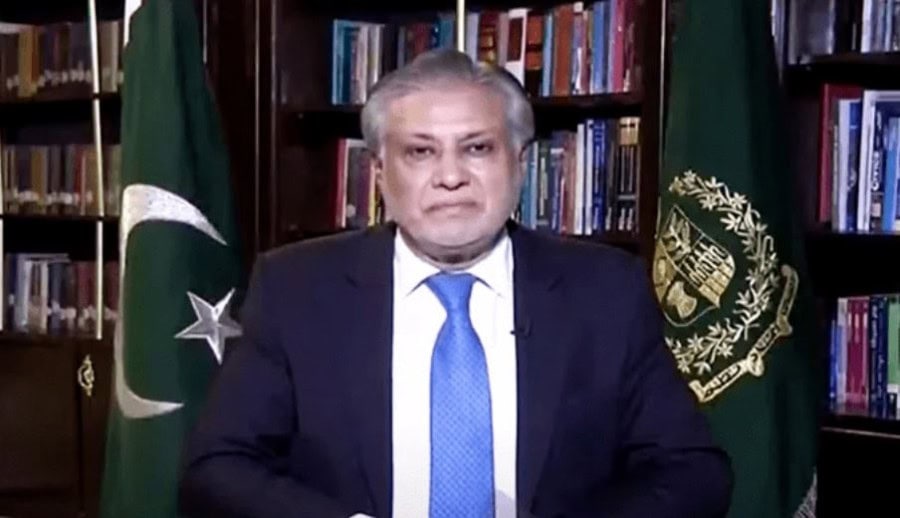The federal government on Wednesday announced that it will move ahead to establish an interest-free Islamic banking system and withdraw in the coming days appeals filed against it in the Supreme Court of Pakistan.
This was announced by Federal Finance Minister Ishaq Dar on Wednesday. He said that the appeals filed by the State Bank of Pakistan against the imposition of the Islamic banking system in the country will be withdrawn.
In a televised statement he said that in recent years the progress on imposing an ‘Islamic’ system of banking had faced hurdles and challenges.
He further disclosed that when the Federal Sharia Court earlier this year issued its verdict to impose an Islamic form of financial and banking system, the government had knowledge that the State Bank of Pakistan and National Bank, both representatives of the government in the banking and financial sector, had separately filed appeals in the Supreme Court of Pakistan against the verdict.
“Because this is ordained in the Holy Quran, I believe the barometer of our decisions is the Quran and Sunnah, we all should follow it,” he said.
Dar said that with permission from Prime Minister Shehbaz Sharif and after due consultation with SBP Governor Jameel Ahmed, both the central bank and National Bank will withdraw their appeals from the Supreme Court and that their government will try their utmost to enforce the Islamic system of banking as soon as possible.
He prayed for divine guidance on imposing this new, interest-free system. He, however, reminded that there are a lot of challenges in implementing this system since Pakistan’s entire banking system in vogue for the past 75 years cannot suddenly move to a different system.
“The government has decided in light of teachings of the Holy Quran and Sunnah that the two appeals against the Federal Shariah Court’s verdict by the government will be withdrawn and work to implement the system in the defined timeline.
The FSC verdict in the long delayed case was announced in April. The court had ruled that the federal government and provincial governments must amend relevant laws and issued directives that the country’s banking system should be free of interest by December 2027.
Commercial banks and the central bank had subsequently filed an appeal before the Supreme Court challenging the FSC verdict.
In his press conference on the matter, Dar said: “With the permission of the prime minister and consultation with the SBP governor, I’m announcing on behalf of the federal government that the SBP and NBP will withdraw their appeals from the SC and our government will fully try to as quickly as possible implement an Islamic system in Pakistan.”
Dar said there was lots of detailed discussion on the matter over the last few weeks and a future roadmap was discussed with the SBP governor as well.
The finance minister acknowledged that there will be many challenges in implementing the FSC verdict and the entire banking system and its practices could not be immediately shifted to a new system but nonetheless, the government had decided to withdraw the appeals in the next few days and pivot Pakistan to an “interest-free” direction within the stipulated time by the FSC.
The first petition for the abolition of the interest-based banking system in the country was filed in the FSC on June 30, 1990.
The then chief justice of the FSC, Dr Tanzeelur Rehman, had constituted a three-member bench that delivered judgment in the case on November 14, 1991, and sought its implementation by April 30, 1992. The then PML-N government had challenged the decision in the apex court. Years later on December 23, 1999, the SC upheld the decision of the FSC and directed authorities to ensure its implementation by June 30, 2000.








